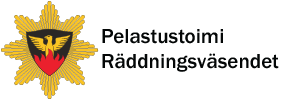

International cooperation
Providing international rescue assistance under treaties and European Union legislation as well as receiving such assistance in Finland falls within the Ministry of the Interior’s remit.
Finland may, at the request of another state or an international organisation and by the Ministry of the Interior's decision, send rescue and other assistance units and civil protection experts abroad in the event of disasters. In some situations, Finland may also participate in a rescue mission by offering material or financial aid by decision of the Ministry of the Interior. Such situations include natural disasters, environmental accidents, man-made disasters or destruction caused by terrorist attacks. Emergency Services Academy Finland is in charge of preparedness and contingency planning for international missions as required by the Ministry of the Interior.
Union Civil Protection Mechanism
The European Union Civil Protection Mechanism is one of Finland's most important instruments of international assistance. The Mechanism was established to strengthen and enhance cooperation between the European countries and to facilitate the coordination of civil protection, improving prevention of, preparedness for and response to natural and man-made disasters. All EU Member States as well as Iceland, Norway, Serbia, Montenegro, North Macedonia and Turkey participate in the Mechanism (Participating States, PS).
The assistance system is based on the Participating States’ national capabilities, the ultimate deployment of which is within the competence of the Member States. Finland currently participates in the European Civil Protection Pool with a Technical Assistance and Support Team (TAST). The modules of the Pool are specialised and autonomous rescue units capable of rapid deployment. The assistance provided by Member States is coordinated by the European Commission through the Emergency Response Coordination Centre (ERCC) based in DG ECHO in Brussels.
Following a 2019 amendment to the legislation on the Civil Protection Mechanism, Union-level RescEU capabilities were set up in conjunction with the Mechanism to provide international assistance in case of disasters and emergencies which overwhelm existing national resources and the capabilities tied to the Union Civil Protection Mechanism. The rescEU capabilities are developed in three areas, in particular: aerial fire-fighting in forest fires, medical emergencies and CBRN. Finland participates actively in the development and implementation of the rescEU capacities and especially the CBRN capacities. The Nordic countries also work together to develop the RescEU capabilities.
A new proposal on the Civil Protection Mechanism was submitted in summer 2020. In particular, it is underpinned by the need to enhance the European Union's preparedness for responding to serious, large-scale disasters and emergencies, which was highlighted by the COVID-19 pandemic.
Treaties
Finland is party to a number of regional and bilateral treaties with its neighbouring countries under which civil protection assistance can be provided and received. These treaties concern accident prevention and preparedness as well as disaster rescue operations. The countries with which Finland has signed a treaty on civil protection include
- the other Nordic countries (Nordred)
- Estonia
- Russia, and
- the Barents Euro-Arctic countries.
Finland is also a party to agreements made under the auspices of the Arctic Council (Agreement on Arctic Aeronautical and Maritime Search and Rescue Service, Agreement on Cooperation on Marine Oil Pollution Preparedness and Response in the Arctic), and the Ministry of the Interior participates in the Arctic Council’s permanent Emergency Prevention, Preparedness and Response Working Group (EPPR).
Rescue assistance based on local and regional agreements enabled by the NORDRED rescue cooperation agreement is used on an almost daily basis on our borders in Northern Finland.
In addition to more conventional rescue missions, civil protection expertise is today used extensively to support humanitarian operations, especially in their early stages when the focus is on building the logistics and infrastructure for the actual assistance measures. Finland’s participation in international assistance missions has in recent years included sending a rescue team and equipment to help put out the forest fires that raged in Sweden in 2018 through the NORDRED agreement and sending material aid through the Civil Protection Mechanism among others to the earthquake in Albania, Greek refugee camps, and Lebanon following the explosion in Beirut. The Technical Assistance and Support Team also aided an EU expert group in assistance and coordination tasks in Beirut.
Through the United Nations Office for the Coordination of Humanitarian Affairs (OCHA), expert assistance can be sent to the United Nations Disaster Assessment and Coordination (UNDAC) team, and rescue teams or individuals have been made available to the International Search and Rescue Advisory Group (INSARAG). Assistance is also sent through the globally operating International Humanitarian Partnership (IHP). NATO’s Euro-Atlantic Disaster Response Coordination Centre (EADRCC) may also request or mediate rescue assistance.
In 2014, Finland was the most active country in sending out UNDAC experts globally.
Other cooperation
Finland engages in active cooperation with the other Nordic countries in the field of civil protection and preparedness and in bilateral collaboration with its neighbouring countries (Sweden, Estonia, Russia). The Department for Rescue Services also participates in NATO's civil preparedness cooperation.
More information
Emergency Services Academy - International rescue service cooperation
Partners and forums
United Nations Office for the Coordination of Humanitarian Affairs (OCHA)
United Nations Disaster Assessment and Coordination system (UNDAC)
UN Convention on the Transboundary Effects of Industrial Accidents
International Search and Rescue Advisory Group (INSARAG)
International Humanitarian Partnership (IHP)
NATO Civil Emergency Planning Committee (CEPC)
Euro-Atlantic Disaster Response Coordination Centre (EADRCC)
Nordic rescue cooperation (NORDRED)
Council of the Baltic Sea States (CBSS)


